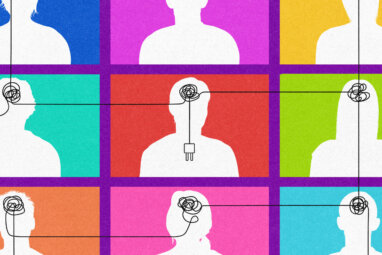Managing the Distraction-Focus Paradox
Curiosity and concentration are often at odds — but they needn’t be.
In the time you’ve set aside to read this article, you’re likely to check your phone. You’ll probably see notifications for emails or text messages pop up on your lock screen. You won’t resist. Once you’ve started thumbing through your apps, you’ll check Twitter, too. If you use Twitter as your media feed, you may click through to an article about blockchain or vacations in Barbados. I’ll be lucky if you make it back here.
Nicholas Carr, author of The Shallows: What the Internet Is Doing to Our Brains, would have you believe that your behavior is a serious problem, that the ephemera of the internet are hijacking your ability to concentrate and think.1 I disagree — or rather, I’d argue that, in today’s workplace, the seductive clamor of the web is a reality from which there’s no retreat. In the age of big data and ever-more-powerful processors, we must absorb more data at faster speeds. Those who’ll succeed in this distraction-filled world as thinkers, managers, and innovators will need to combine two seemingly opposing traits. They must be able to absorb diverse information from a wealth of sources, and they must be able to focus intensely. I call this the distraction-focus paradox. While these two qualities seem contradictory, together they make up the skill set for managing your most valuable personal resource — your attention — in a hyper-connected age.
Yes, these abilities have always been important — but their combination will become more so in the coming years, as social media and mobile computing continue to advance. (See “Skill Set for a Connected World,” which presents the net effect of differing combinations of these essential skills.)
Knowledge workers need diverse information. Research has repeatedly shown that diversity in mental models — that is, how you interpret and see problems — leads to better problem-solving and more innovation.2 That’s a theme that courses through Misbehaving: The Making of Behavioral Economics, the memoir of Richard Thaler, the Charles R. Walgreen Distinguished Service Professor of Behavioral Science and Economics at the University of Chicago Booth School of Business, and the 2017 winner of the Nobel Prize in economics.
References (16)
1. N.G. Carr, “The Shallows: What the Internet Is Doing to Our Brains” (New York: W.W. Norton & Co., 2010).
2. S.E. Page, “The Difference: How the Power of Diversity Creates Better Groups, Firms, Schools, and Societies” (Princeton: Princeton University Press, 2007).






Comment (1)
Shrikant Navelkar